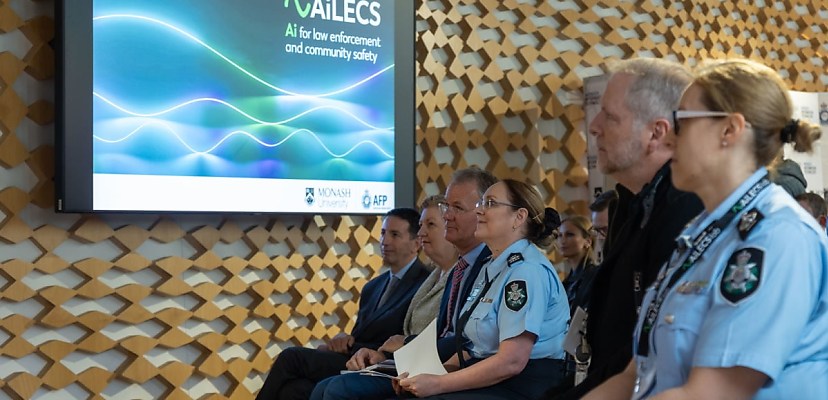Share this article on:
Powered by MOMENTUMMEDIA
Breaking news and updates daily.
A joint research centre established by Monash University and the Australian Federal Police (AFP) will explore how the power of artificial intelligence can be harnessed to aid in law enforcement.

Co-directed by AFP Leading Senior Constable Dr Janis Dalins and Monash University Associate Professor Campbell Wilson, the AI for Law Enforcement and Community Safety (AiLECS) lab was established to develop AI-based techniques to assist policing and create safer communities in Australia and worldwide.
“We are currently witnessing the age of AI; we have already seen how newer technologies are being misused, leading to increased cyber attacks, identity theft, exploitation and misinformation,” Wilson said.
The lab was first established in 2019 and has already launched a number of projects, such as The Explain Project, which explores the use of AI in the criminal justice system and the requirements for explainability for AI in a legal context.
“Our research at AiLECS harnesses machine learning, natural language processing, network analysis and other techniques to support law enforcement in countering child abuse material, detecting and classifying illegal firearms, recognising misinformation and analysing large online criminal networks.
“While building these AI support systems, we are focused on ensuring the datasets used to train our algorithms are ethically sourced because it is important to ensure AI used for the greater good is also produced responsibly,” Wilson said.
Deputy Commissioner for the AFP, Lesa Gale, stresses the importance of working together to take on criminals who are using technology, including AI, more and more to achieve their goals.
“Our partnership with Monash University is an exceptional example of how we can adapt to the criminal challenges we are facing, but also provide the public with assurances that they need and deserve in relation to privacy concerns, AI and machine learning,” Gale said.
In a cyber context, criminals have already been observed using AI to empower ransomware attacks, write phishing emails and even write code.
While AI chatbots like OpenAI’s ChatGPT have ethical safeguards to prevent or limit hackers from using them for malicious means, a number of morally unlimited versions, such as FraudGPT, have spawned, attracting threat actors.
Monash University vice-chancellor and interim president Professor Susan Elliott AM has said that the AiLECS has already made headway in ensuring that AI is used for the betterment of mankind.
“The combined strength of our research along with the applied expertise of a national agency like the AFP is already setting a global benchmark of how we can harness AI for the greater good,” she said.
Dalins implored police worldwide to adapt and adopt new emerging technologies like AI, as criminals are already using them.
“Through this collaboration, we are able to combine global-first research initiatives in AI and machine learning with law enforcement expertise and principles,” Dalins said.
“We aim to be a voice for ethics and accountability in AI.”

Be the first to hear the latest developments in the cyber industry.